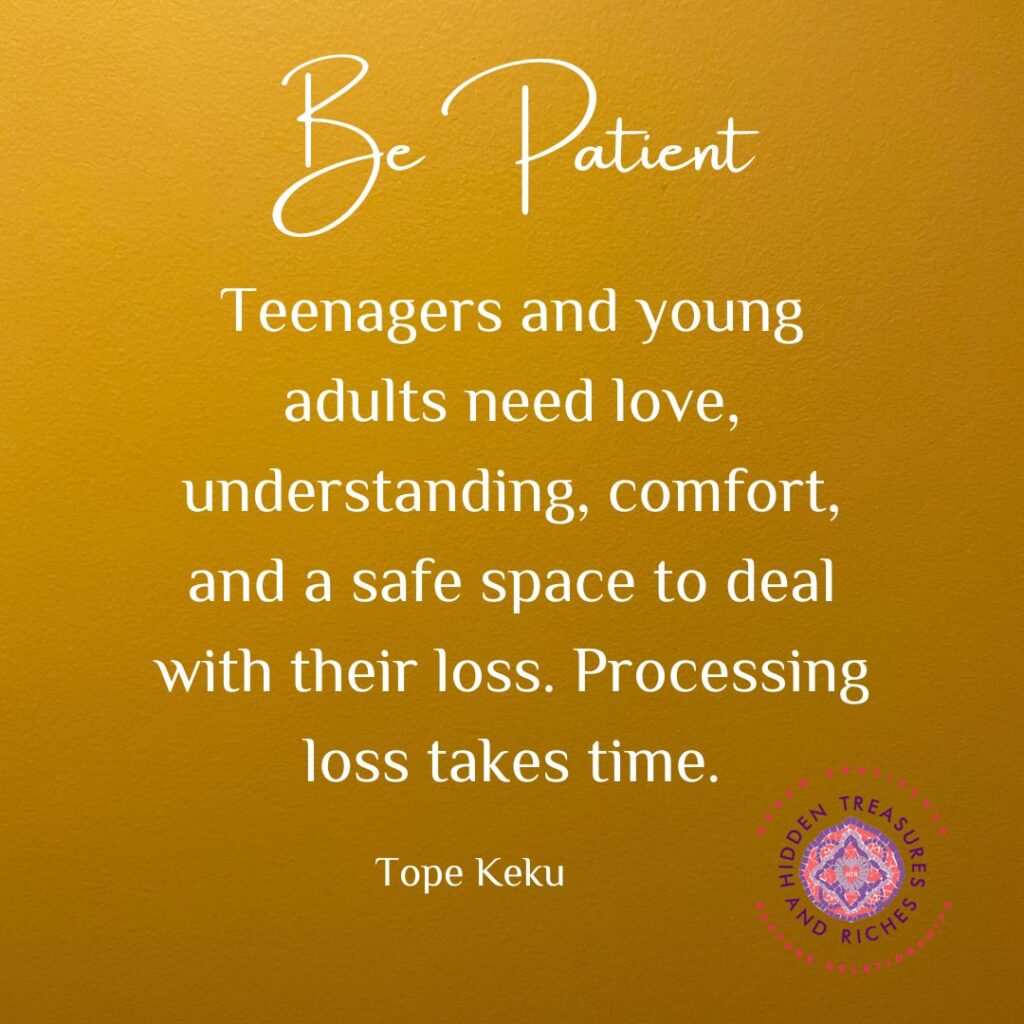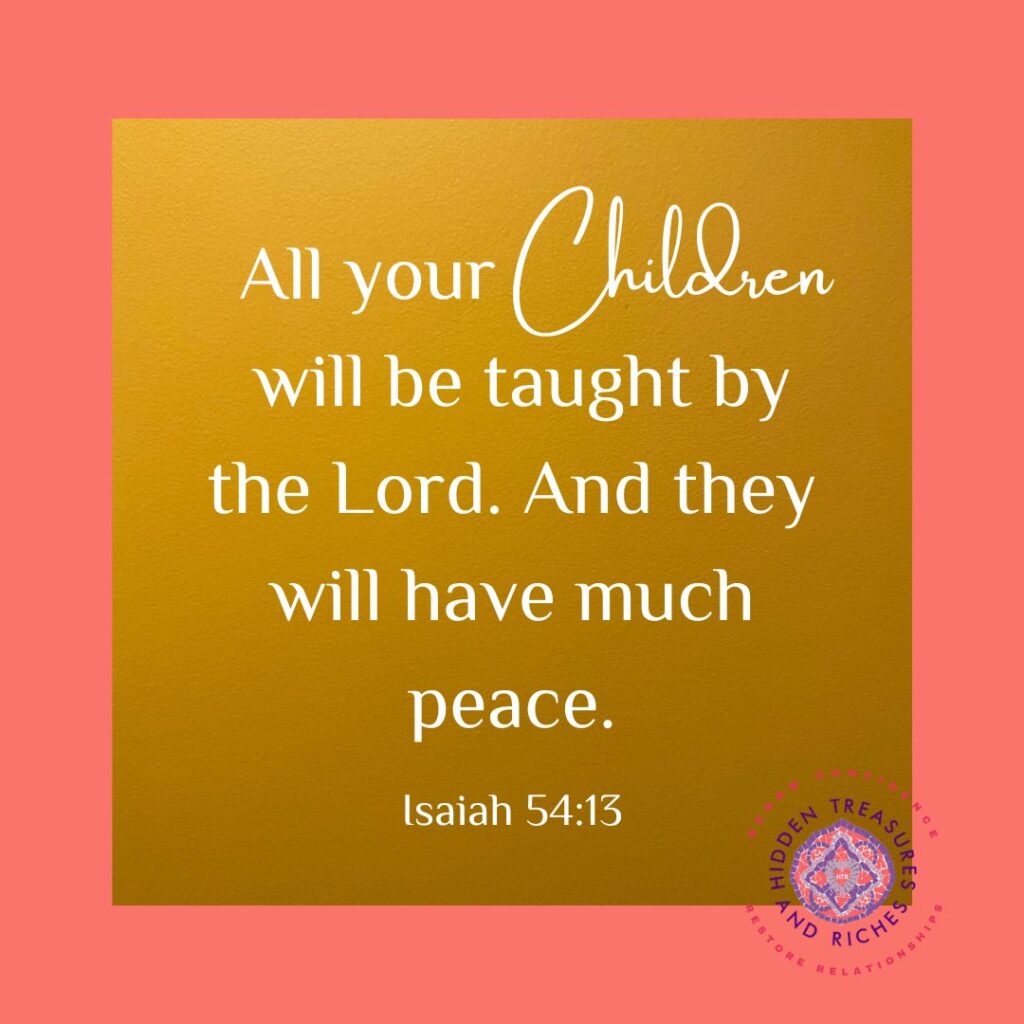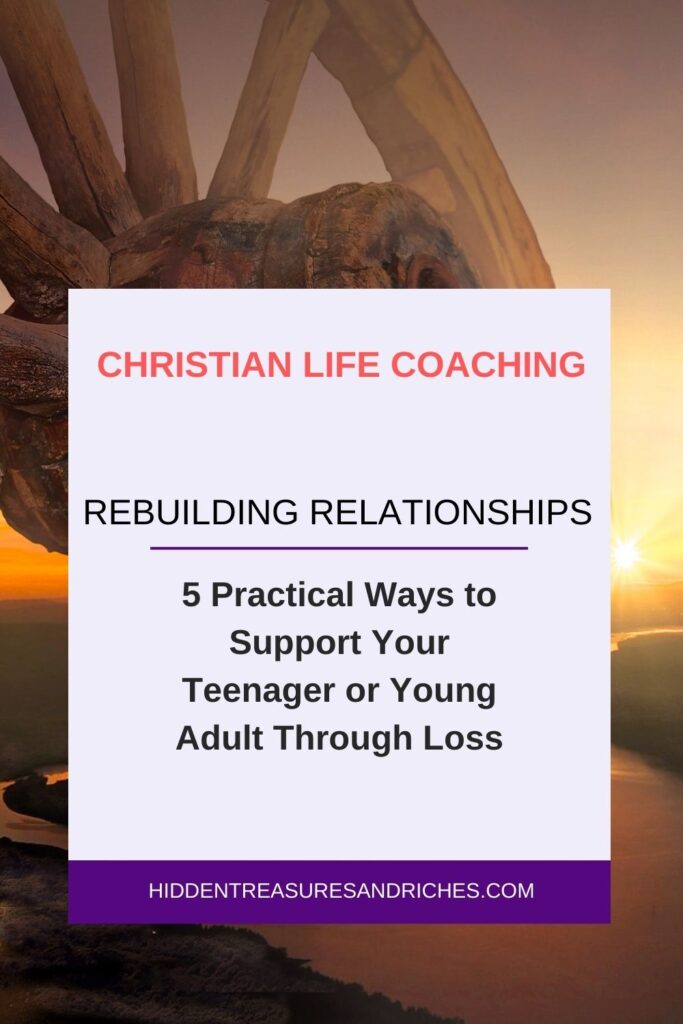How’s your family? I asked. He responded, my teenage son is struggling… tells fibs, is depressed, and dealing with a host of other issues. As I listened, I felt empathy for this dad that I met during my walk one morning. I asked, what do you think is underlying your son’s struggles? He didn’t have answers, but he worried about his son.
A Listening Heart

Take the first step towards healing and growth. Book your free call now and let’s journey together in faith and friendship.
Everyone goes through difficult times, including teens and young adults. Sometimes their response to loss and life’s challenges may result in acting out, rebellion, addictions, high-risk behaviors, telling lies, and so on.
My friend, Lori’s 18-year-old son, was imprisoned. She asked former inmates participating in her son’s 180 rehabilitation program, “when was the first time you went the wrong way or made a bad decision?”
Their answer surprised her, and it may surprise you too.
Loss.
Many said their first bad decision was after a loss, such as when grandma died, dad walked away, mom died, dad and mom got a divorce, or a pet died. Some shared that their first poor decision was related to loss of friendship when the family relocated or friendship break-ups. Their loss was not always related to death.

Have you ever asked your adolescent or young adult, “when was the first time they drank alcohol, smoked, or made poor choices?”
As parents, we may miss the underlying reasons because we focus on the symptoms and self-destructive behaviors. Grief and loss and the intense emotions they carry like sadness, disbelief, and anger can be difficult for teens and young adults who may not know how to deal with them.
While your teenager or young adult’s answer might surprise you, it could be an excellent opportunity to come alongside and support your child in processing their loss.
5 Practical Ways to Help Your Teenager or Young Adult Cope with Loss

- Create a safe space to share feelings about their loss
Grief and loss are part of life. As parents, we rely on experience and resources to help us cope, but teens and young adults may not have those skills yet.
For instance, your adolescent child may assume that it’s wrong to express negative emotions or believe there is a right and wrong way to feel about loss.
You can help your child know that dealing with loss is a unique process for each person. Some people may cry, get angry, or withdraw. All are acceptable ways to cope.
Sharing a story about your experience with loss and how you dealt with it may encourage your son or daughter to feel safe. It also helps them know it’s alright to be in touch with their feelings and emotions.
- Foster communication and connection
Adolescent years can be fun, but it’s also a time when young folks are going through physical, emotional, and hormonal changes. So, adding loss on top of these life changes can be overwhelming.
Sometimes your teenager or young adult may seem aloof. It’s easy to think they don’t care about connecting with you. This is so far from the truth.
Your teenager wants to connect, but they may feel awkward because they don’t know or have the words to express their feelings.
The emotion wheel is a valuable tool to help them express their feelings. Or share an experience and your feelings about it. For example, I feel sad and angry when I see someone being bullied.
By doing this, you’re connecting with your child, showing you understand, and helping them identify and share their feelings. Talking about their feelings will make your son or daughter feel less anxious, hopeless, and sad.
- Share fun memories together.
Invite your teenager or young adult to share fun memories.
Whether your teenager is struggling with losing grandma, a close friend, a pet, or a break-up, it’s ok to ask how they are doing and if they’d like to talk.
If they are up for it, sharing a special memory or what they miss the most about grandma, pet, or friend will help them lighten up.
Your role is to listen with an open mind, let go of any judgment, and support them through this process.
Pray and ask God to fill your child’s mouth with laughter and joy during their loss. Joel 8:21
- Adopt a come-alongside approach.
Sometimes loss comes with a whirlwind of emotions such as sadness, loneliness, and anger all at once that may skew adolescents’ perceptions. They may incorrectly assume responsibility for the events leading to the loss. For example, teenagers may blame themselves for dad walking out on the family or for their parent’s divorce. Or they may be angry at God. This is their current perception and reality… and it’s ok.
How are you coping with your grief and loss if grandma passed away? Your teenager may feel bad about having fun or offending you if grandma was your mom.
Teenagers and young adults need a safe space to process feelings and emotions. It’s ok to ask how you may support them.
One thing I found helpful when my children were teenagers was giving the gift of presence and letting them know I was available if they wanted to talk. Let them know you welcome their questions! Before I adopted this approach with my teenagers, our relationship was rocky, but it improved over time.
Giving the gift of presence will require you to be fully present and listen. This come-alongside approach will help your children feel supported, secure, and heard. Besides, it lets them know it’s acceptable to feel what they feel.
It’s also reasonable to seek professional help for your son or daughter.
- Laugh again
Assure your teenager or young adult that the feeling of grief and loss won’t last forever. They’ll laugh and have fun again.
Laughter is good medicine for the soul. As a young adult, I struggled with my dad’s early death. I was mad at God for a while, but I’m forever grateful for my mom’s support. I’ve shared how she helped me cope during that painful period in this post.
Another way I handled the loss was by recalling the good times with my dad. In time I learned to laugh again despite the loss. Your teenager will laugh again and find purpose in their loss. Lori’s son, Rusty, found peace and purpose in his loss.
Embracing these steps will help lessen the pain from loss and empower your children to feel comfortable processing difficult emotions and feelings. Your teenager or young adult needs your love, understanding, comfort, and a safe space to deal with their loss. Be patient. Processing loss takes time.
It’s easy to worry as a parent, but prayer is your greatest asset during this time! Engage with others in your faith community and ask them to pray for your son or daughter.

Lean on Abba, claim his promises and plan for their lives, such as Jeremiah 29:11, Isaiah 54:13, Isaiah 44:3, Proverbs 11:21, and Isaiah 49:25.
Remember that God is dependable and faithful no matter what your child’s loss may look like. He is a dependable ally as you help your teenager deal with their loss.
Weeping may last for a night, but joy comes in the morning (Psalm 30:5).
Which of these five ways do you identify with? Share one way you’ve helped your child deal with loss.
Wondering how to rebuild your relationships so you can live a rich and satisfying life? Book a FREE Discovery Call today to discuss how I can help you.
You may also be interested in The Secret to Raising Godly Children and Heal Your Relationship with Your Children




